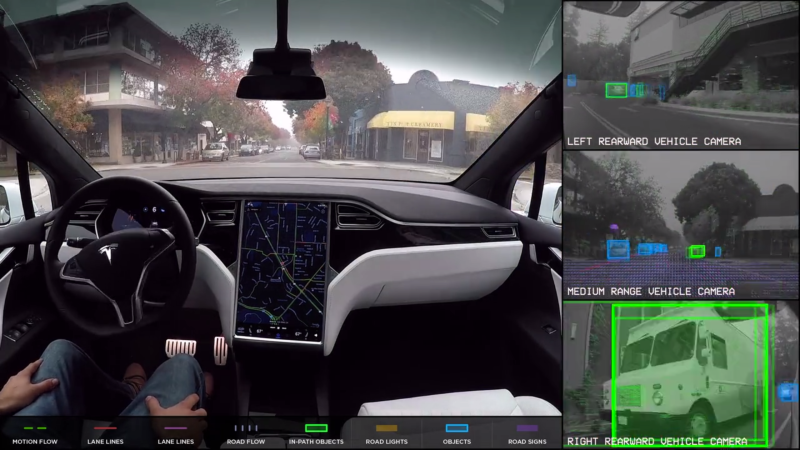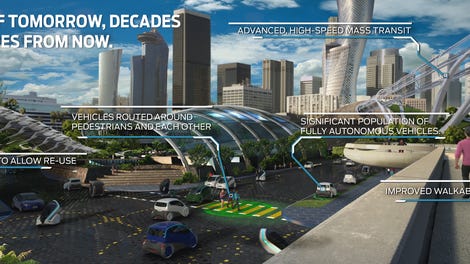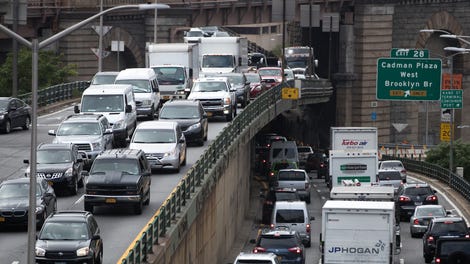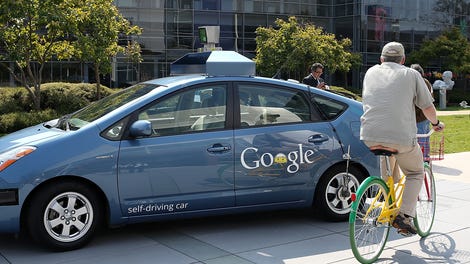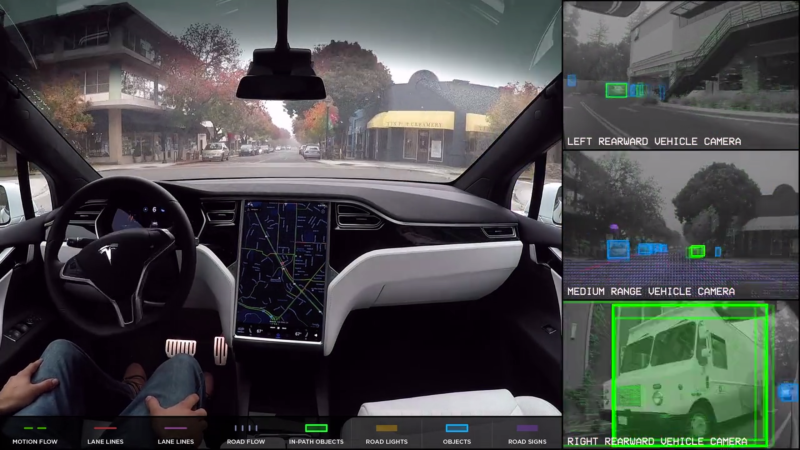
Tesla founder Elon Musk, a man whose history is peppered with promises and goals he failed to meet, offered up a doozy on Monday about our tech-heavy future: nearly all new vehicles will be capable of full autonomy within 10 years. But even if that’s true, we’re nowhere close to figuring everything else out that goes along with that.
Advertisement
“Ten years, yeah,” Musk said at the World Government Summit in Dubai, without a hint of sarcasm. To his credit, Musk highlights that it’ll take — at the very least — a generation until robot cars monopolize the roadways. According to Electreck, which first highlighted his remarks, Musk said:
There are about 2 billion cars in the world and the total annual production capacity is about 100 million cars, which makes sense since the average life of a car before being totally scrapped is about 20-25 years.
So the point for which we see autonomy appear will not be the point when we see a massive impact on people because it will take a lot of time to make enough autonomous vehicles to disrupt. That disruption will take place for about 20 years.
Mmm … disruption … love it. Musk’s obviously bullish because he has invested his reputation and a boatload of money into making self-driving and electric cars a reality; the billionaire has said he wants to send a Tesla on an autonomous cross-country trip sometime this year.
But 10 years? Lordy.
I have a prediction of my own: A lot will happen in the next decade!
Will the tech be ready? Sure, it’s possible. Tesla’s Autopilot is an obvious example that semi-autonomous vehicles can perform, the caveat being an attentive human is needed at the wheel. But the ambiguity of All Cars Will Be Very Capable Robots In 10 Years leaves more questions than answers. What’s “ready”? An accident rate of <5 percent? Will they be equipped and capable of full autonomy in a nice, safe geo-fenced area — or are we talking all roads?
Advertisement
Advertisement
That doesn’t even answer concerns about regulations. The U.S. didn’t even propose a set of guidelines for autonomous vehicles until last fall, and the nation’s new transportation chief — as far as we know — hasn’t offered any serious input on the technology, other than to say the majority of America is quite under-educated about the entire prospect. (At least she’s on target with that.)
There’s also liability. Several automakers have said they’ll assume responsibility when their robot cars go apeshit. Musk? He says it’s up to your insurance company. What happens if an AV kills someone?
The fact that Musk served this up isn’t terribly surprising; cheery-eyed auto execs have recently made similar predictions of an auto revolution transpiring in the next decade. But there’s one overarching factor that never seems to enter the same plane of existence as these bold predictions: cost.
Sponsored
A study released a few years back forecasted that the price premium for equipping a vehicle with self-driving gadgetry would add upward of $10,000 to a car’s sticker price in 2025. For Musk’s prediction to work, it’d require automakers to stop producing more basic vehicles. Within the next 10 years. Unless the cost of the technology manages to plummet within the next 10 years, that really seems implausible.
So yeah, could all cars be capable of full autonomy within the next 10 years? Possibly. But this is yet another over-promise in a long line of them from Tesla. There’s still too many kinks to work out, and plenty of things can happen that could slow the march toward autonomy to a painfully slow crawl.

